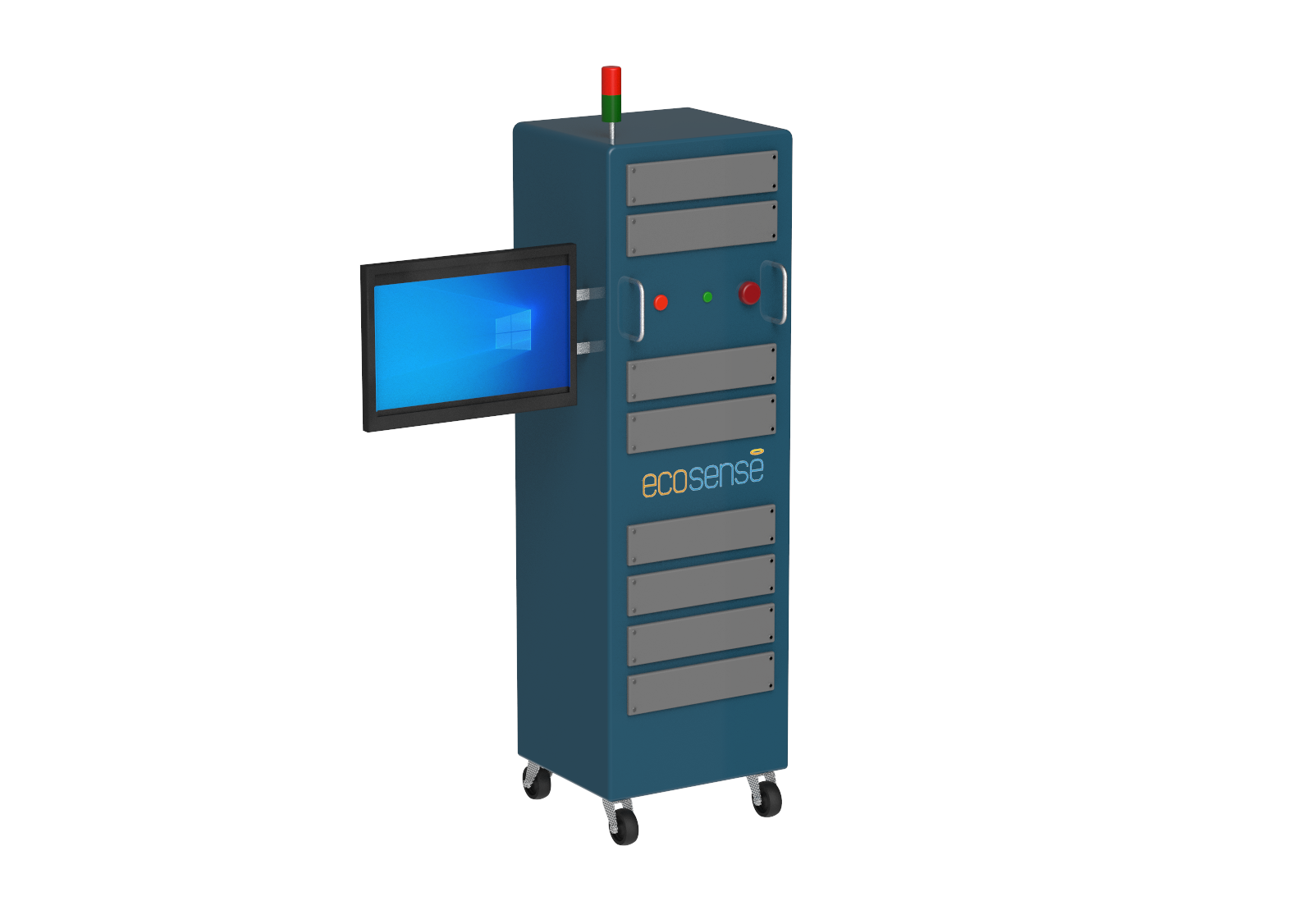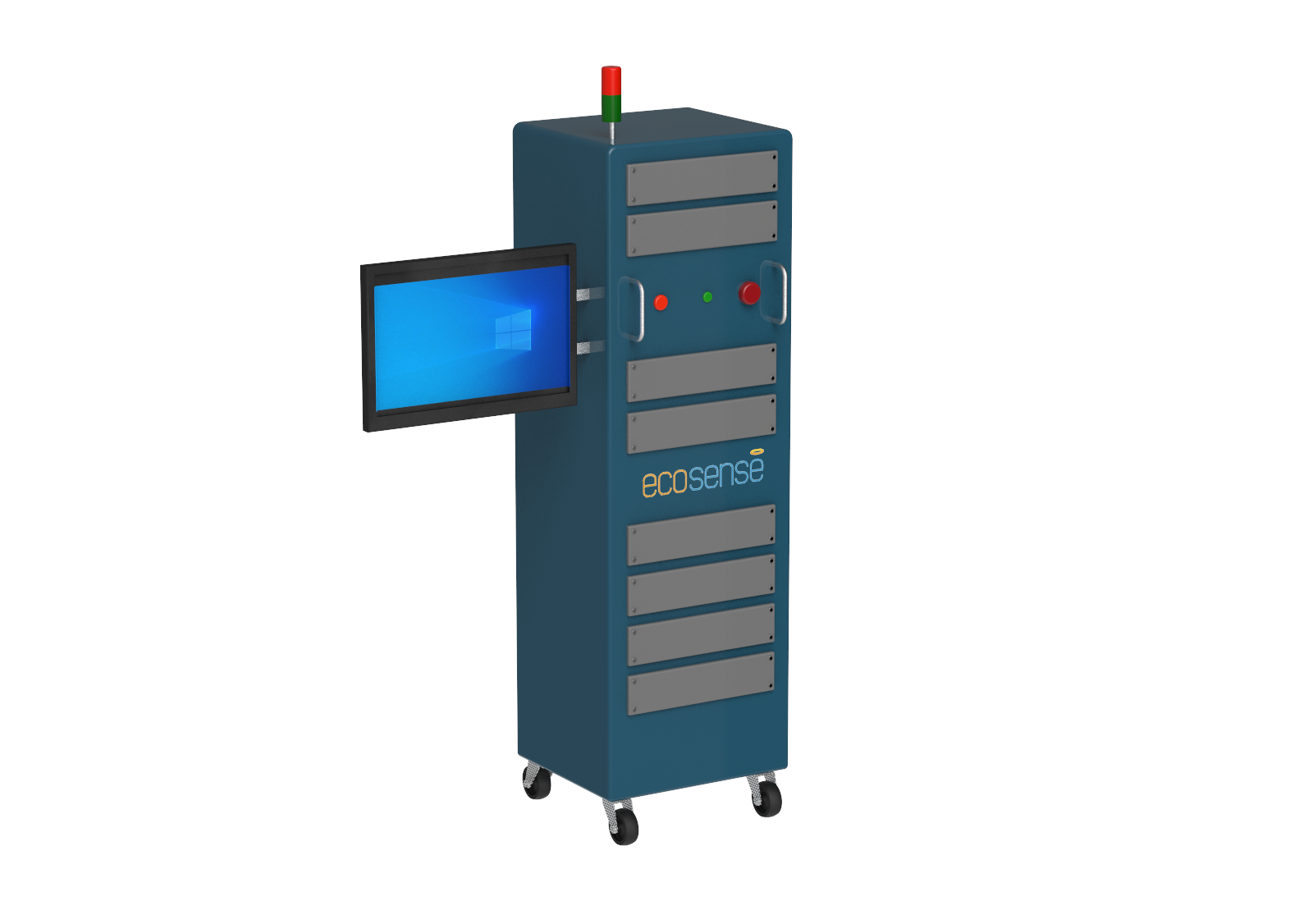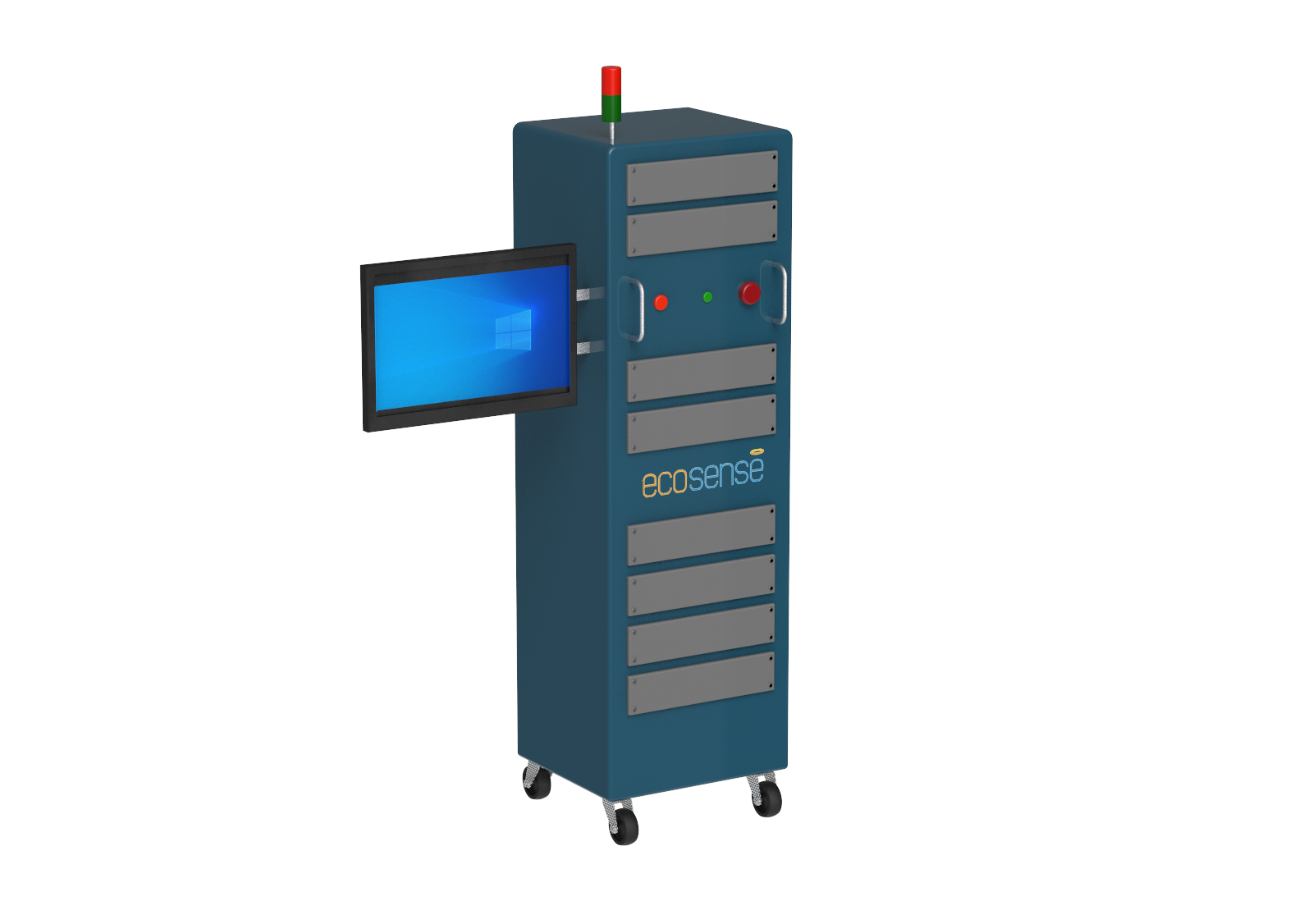BMS Training and Research System
The BMS Training and Research System (BMSTS) by Ecosense is a modular and scalable educational platform designed for advanced experimentation and real-time simulation of Battery Management Systems (BMS). Tailored for EV applications, this system provides a hands-on learning experience in SoC estimation, cell balancing, thermal management, and safety logic using actual EV components. With an integrated environmental chamber and open-source control software, BMSTS enables students and researchers to design, test, and validate custom BMS algorithms in a safe and controlled environment.






